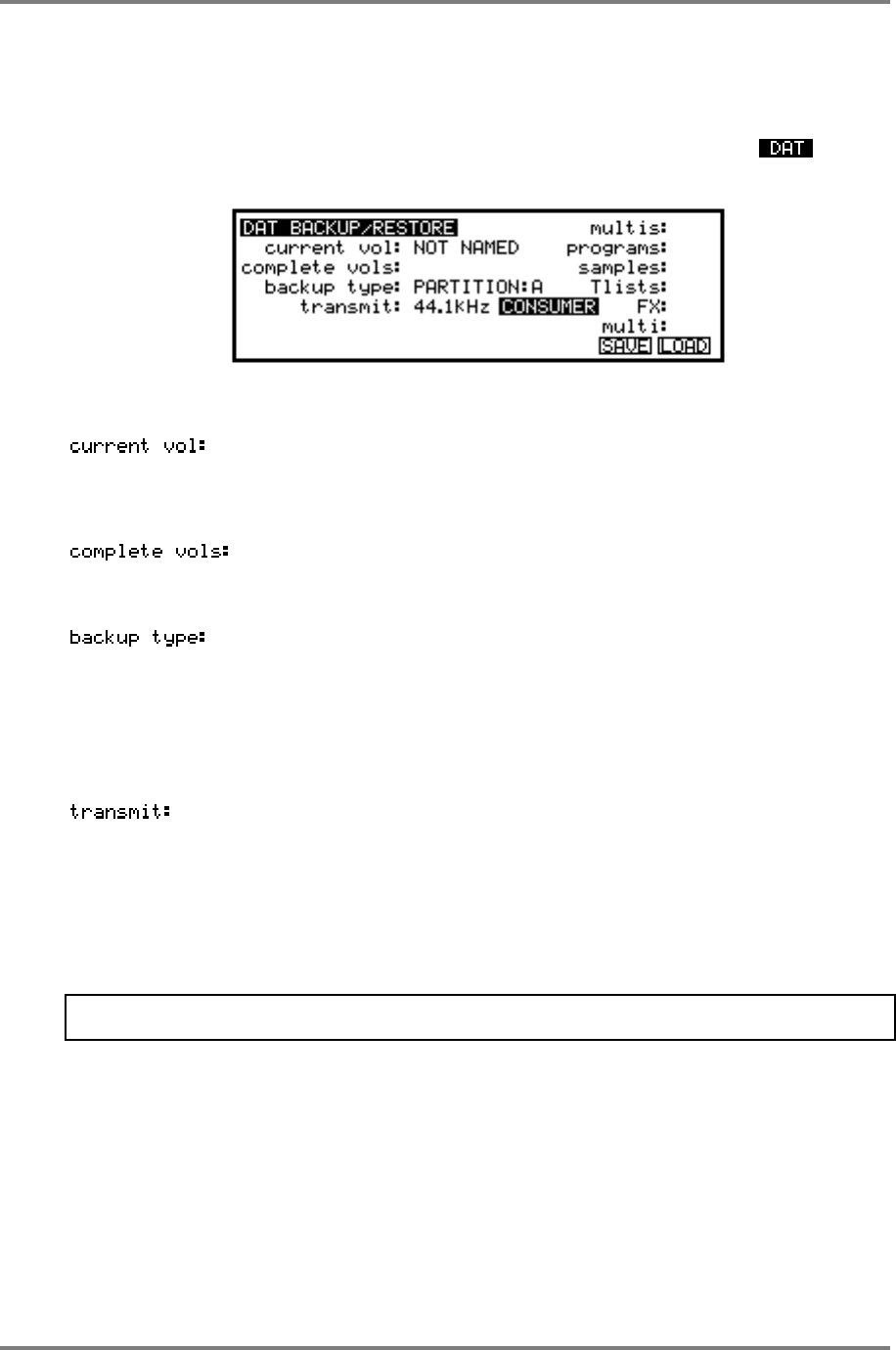
GLOBAL
Page 244 CD3000XL OperatorÕs Manual
DAT BACK-UP AND RESTORE
One very useful function of the digital interface is that of DAT backup. This allows you to make
safety copies of your data on a simple DAT tape. This can be invaluable for archiving a hard disk
when it is full and helps you overcome the problem of lost data in the event of a problem
occurring with your hard disk. To access the DAT BACKUP functions, press F4- . You will
receive this screen display:
Here you may set the parameters and perform a backup or restore. The fields are as follows:
This displays the name of the current volume selected in the DISK
mode. When the backup or restore process is in operation, this field
changes to show the name of the volume currently being backed up
or restored. This field is not accessible to the user.
This field is also not accessible to the user and merely a progress
display to show the number of volumes that have been backed up or
restored in the process.
Here you may select to backup either your hard disk or just a single
memory load of samples - i.e. those in RAM at the present time.
Usually the selection is HARD DISK because you mostly want to use
this facility to make safety copies of your hard disk however many
people, especially those with memory expansion boards fitted in their
sampler, use the back up facility to backup long samples from memory
rather than tie up an expensive hard disk drive.
The sampler’s transmit rate is fixed at 44.1kHz and here you may select
between the consumer format for digital audio (SPDIF) or the
professional AES/EBU format when transferring digital audio to DAT or
some other recording medium or when performing DAT backup. What
you select depends very much on your equipment. Some equipment
is very forgiving and doesn’t mind either format. Other equipment,
however, is not so flexible and you have to choose specifically which
format to use.
NOTE: The selection made here also affects the format of the audio as it appears in real-time
at the digital audio output (i.e. the digital ‘clone’ of the main L/R outputs).


















